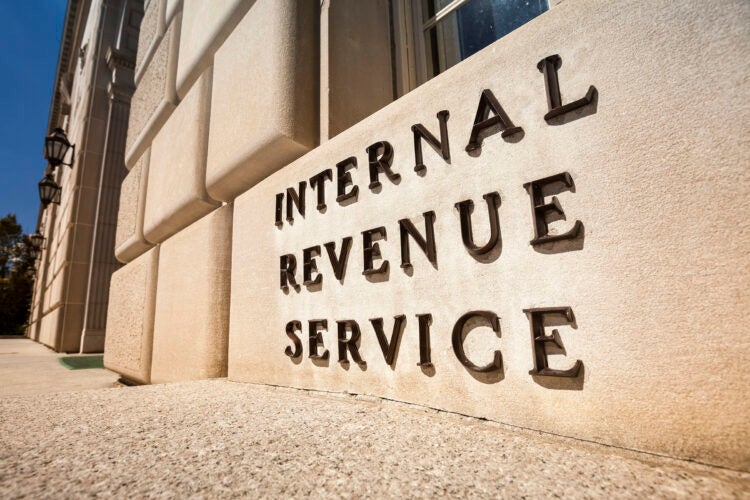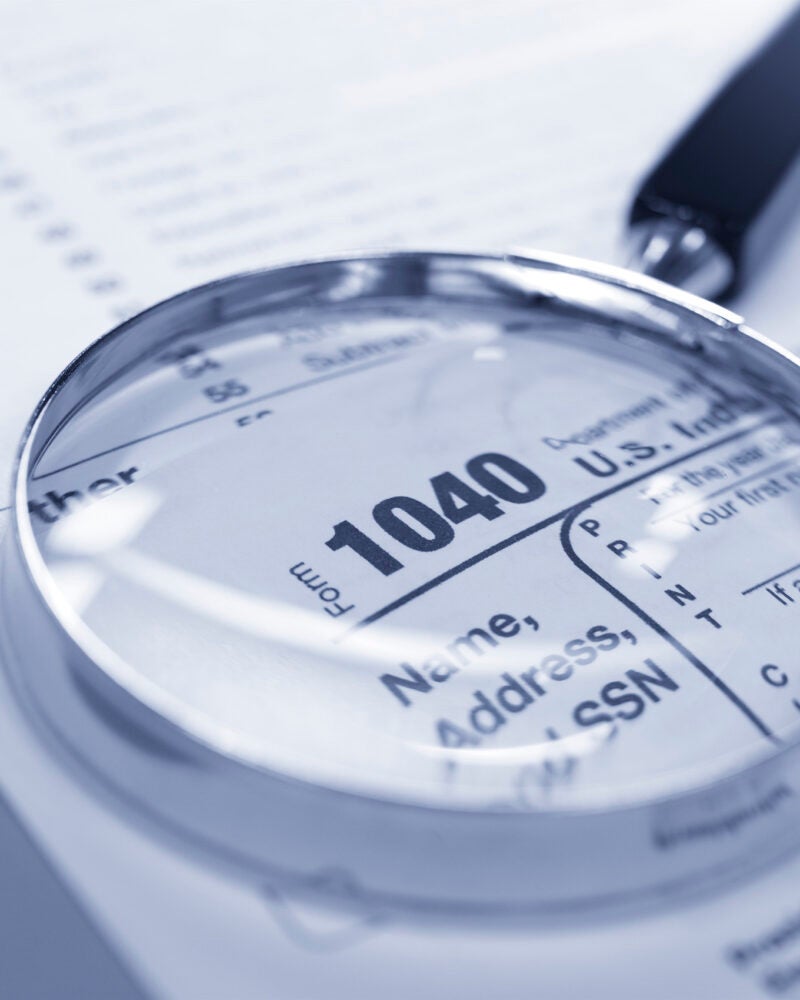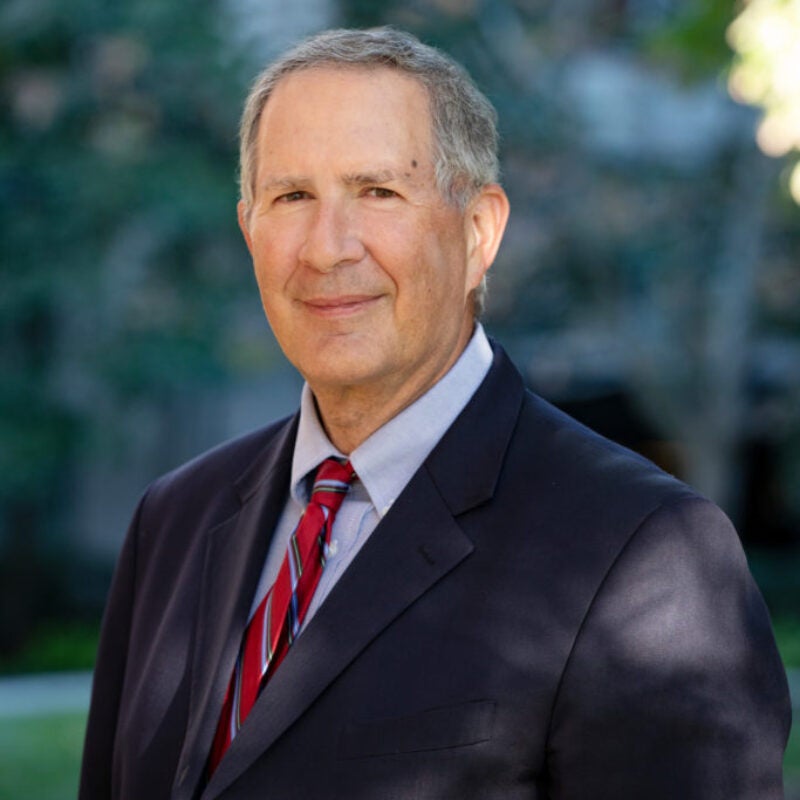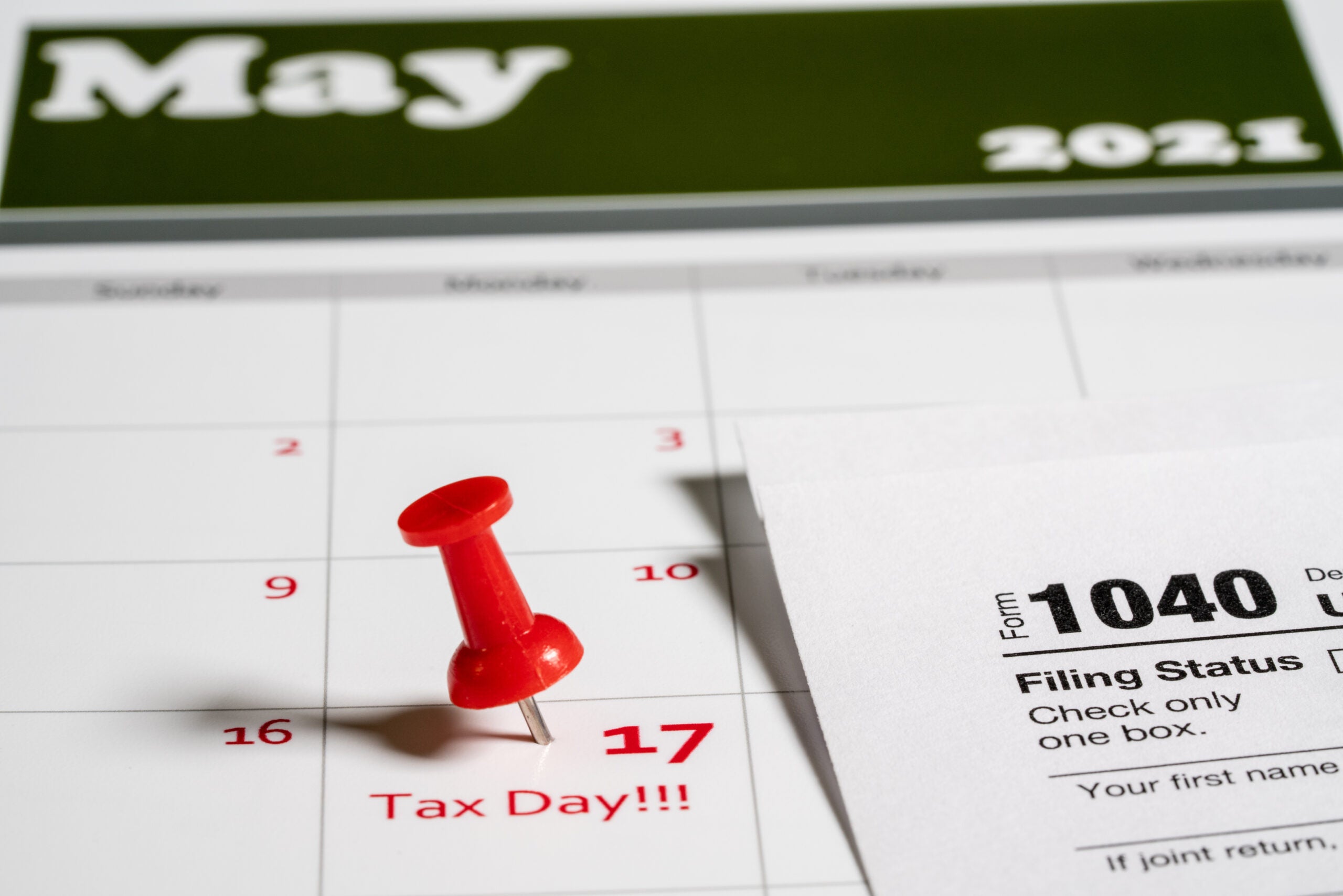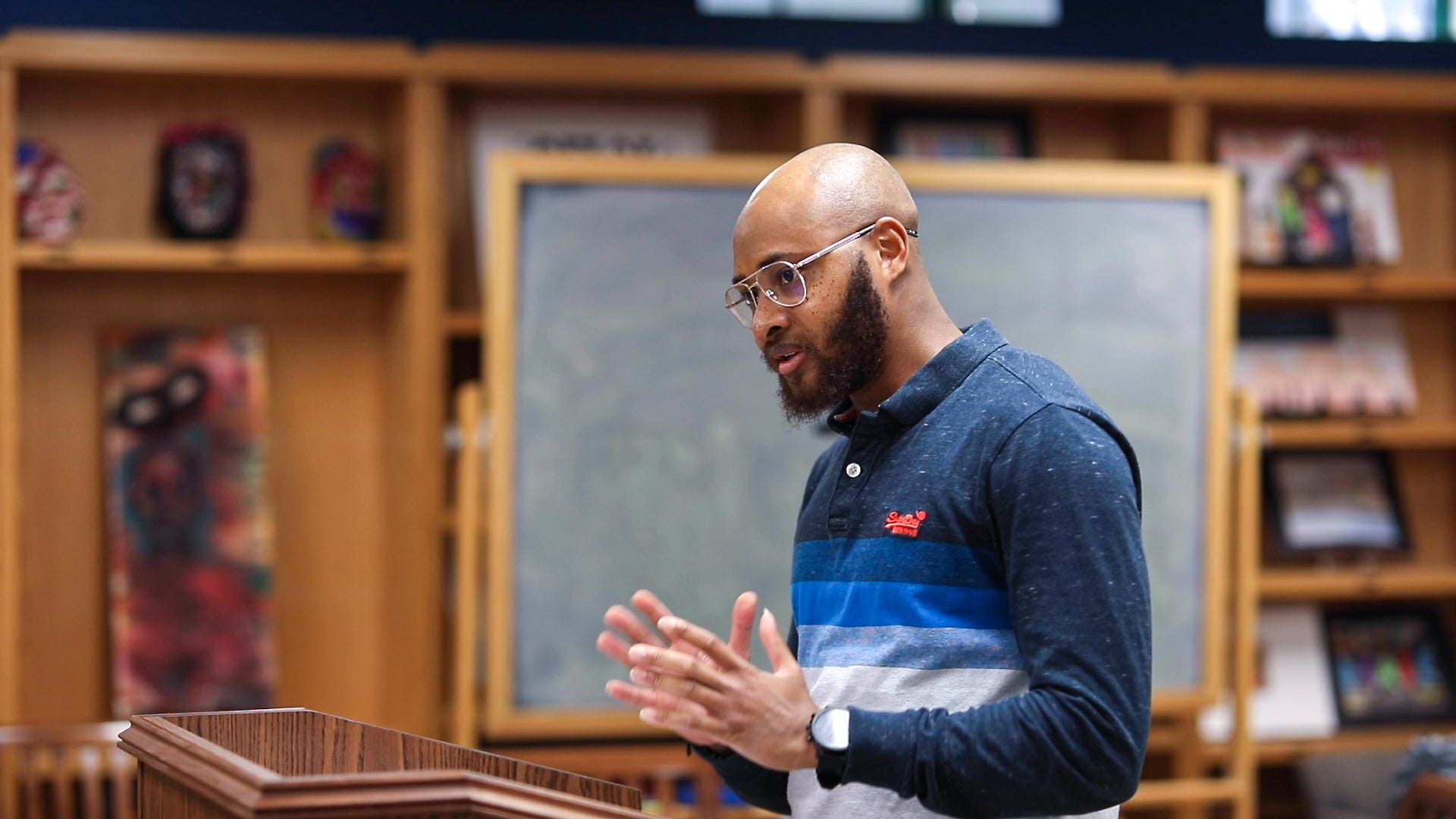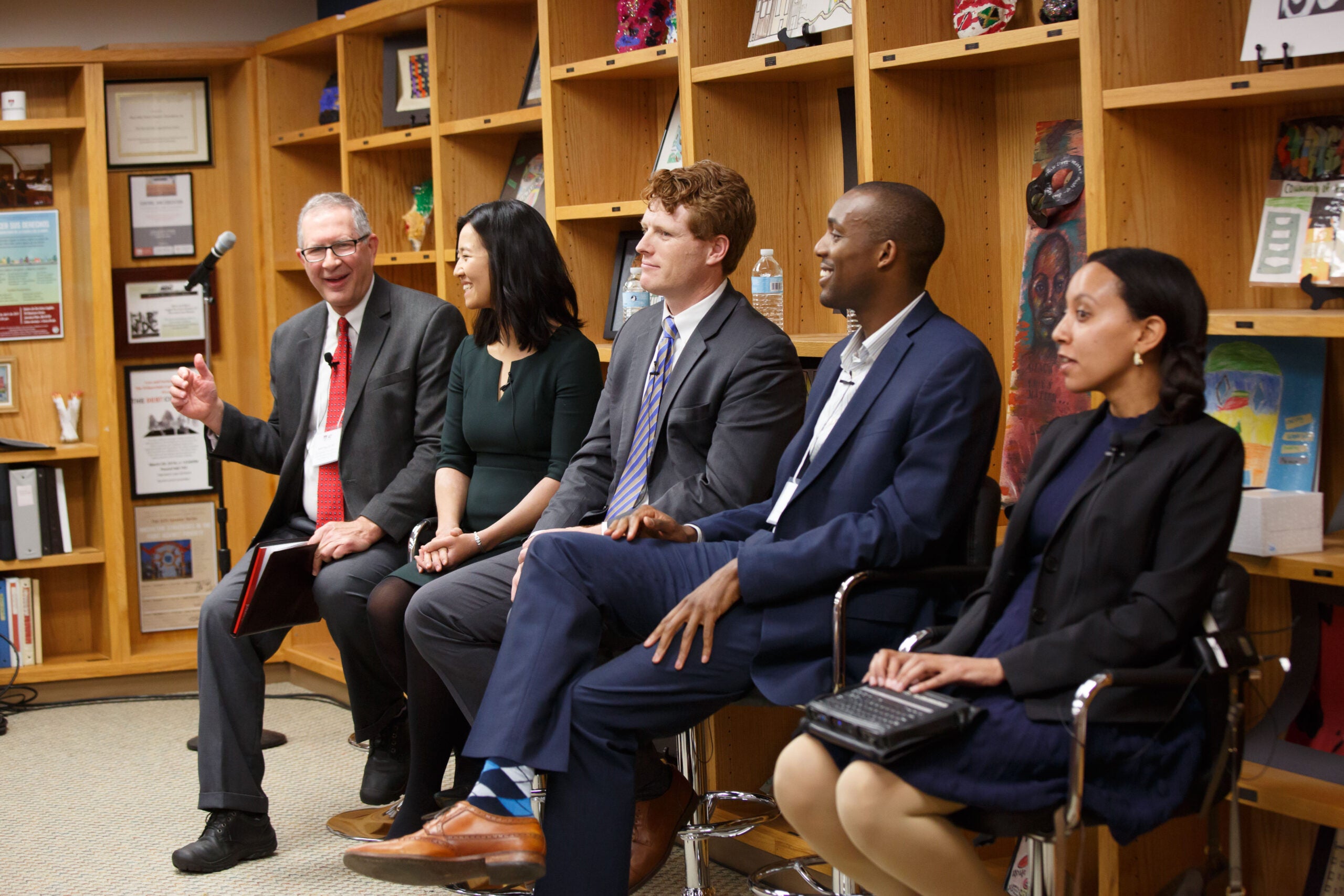People
Keith Fogg
-
A haven for taxpayers
April 18, 2022
Harvard Law’s Federal Tax Clinic helps low-income taxpayers shed their debts — and stress.
-
Should IRS Be Rewarded For Bad Behavior? Former Taxpayer Advocate Says New Bill Would Do Just That
October 22, 2021
Since 1998, the IRS has been prohibited from assessing penalties against a taxpayer unless the initial determination that the penalties should be assessed was personally approved, in writing, by the examiner’s immediate supervisor. The rule requiring written supervisory approval, 26 U.S.C. § 6751(b), was largely ignored by the IRS and the tax practitioner community until 2016, when a pair of cases in the United States Tax Court, Graev v. Commissioner and Chai v. Commissioner, raised the issue. Since then, hundreds of cases have held that the IRS failed to follow the rules set forth in section 6751(b) because written supervisory approval was not obtained prior to an initial determination by the examining agent’s immediate supervisor, invalidating hundreds of penalties as a result. But Representative Richard Neal (D- Mass ), the powerful chairman of the House Ways & Means Committee, has introduced legislation that, if enacted, would retroactively repeal section 6751(b) and its important taxpayer protections. ... The proposed legislation Neal has introduced would retroactively repeal 6751(b) and instead, require quarterly certification of compliance with procedural requirements. Keith Fogg, the director of the Federal Tax Clinic at the Harvard Law Legal Services Center, recently wrote about the proposed repeal in Procedurally Taxing, a tax professional’s blog. Fogg opposes the proposed repeal, explaining, “Some taxpayers who deserved penalties have received windfalls because the IRS failed to pay attention to IRC 6751(b) for the first 15 years of its existence and because the Tax Court created rules regarding the timing of the required supervisory signature that the IRS might not have anticipated. The litigation over the past several years has educated the IRS and those types of windfalls should rarely occur going forward.”
-
Tax Day is here
May 12, 2021
Keith Fogg, clinical professor at Harvard Law School, and his students in the Federal Tax Clinic, answered questions about some common issues taxpayers are facing this pandemic year, helping low-income taxpayers, and President Biden’s proposed tax code changes.
-
This year’s tax season is likely to be more stressful than usual
February 16, 2021
Friday is the delayed start of the tax filing season. Like everyone else, the already short-staffed IRS had a tough time adjusting to working during in the pandemic, plus it had to figure out how to get two rounds of relief payments out, which put the agency a little behind. In 2020, the filing deadline was extended to July 15 to make things a little easier. This year, the traditional April 15 cutoff is back, so the next few months are likely to be fairly stressful at the IRS, and this year’s tax season is probably going to be a lot more stressful for many filers as well. And the calculations may be a bit more complicated, especially for people who lost their jobs or had their hours cut back. “A lot of people don’t realize that when you get unemployment, it’s taxable. So they might not have had adequate withholding,” said Keith Fogg, a professor at Harvard Law School who also runs the federal tax clinic there. “Last year, a lot of people are pulling money out of their retirement accounts to try to make ends meet, which is creating more taxable income,” he said.
-
Not ‘manifestly criminal’
September 29, 2020
Harvard Law Today spoke Monday with tax experts Keith Fogg and Thomas Brennan about the New York Times' report on President Donald J. Trump’s taxes.
-
The latest Economic Impact Payment figures released by the Internal Revenue Service states more than $5.7 billion has been paid out to Arizonans. Adults earning up to $75,000 in adjusted gross income who had a valid Social Security number started receiving the one-time $1,200 payment on April 10 as part of an emergency relief package approved by Congress to help people financially during the coronavirus pandemic. Parents also received $500 for each eligible child. While the report states 3.3 million EIP payments have been given to people in the state so far, not everyone eligible for the funds has received their check...An audit by a government watchdog reported June 25 that nearly 1.1 million coronavirus relief payments totaling around $1.4 billion were sent to dead people. Survivors were asked by the government to return the money in May, but it’s not clear they have to. Some legal experts have said the government may not have the legal right to its return. “I think the IRS will do little or nothing to pursue collection of these payments,” Keith Fogg, clinical professor at Harvard and an expert in tax law, said after the report was released. “The cheapest way for the IRS to collect is offset of a future refund. That avenue will not exist for these taxpayers. I don’t think the IRS will take the somewhat difficult steps to pursue the heirs for this amount of money.”
-
Many Americans receiving tax refunds this spring and summer, including some who haven’t even filed their tax returns yet, will receive interest payments from the Internal Revenue Service for late refunds. Any individual income tax refunds issued after April 15 will be paid with interest, even though the tax-filing deadline has been extended to July 15. That IRS decision, announced Wednesday, stems from a quirk in the tax code and in the way the filing deadline was extended. The result: Many people who chose to delay filing their tax returns will get a bonus from the government. The IRS, meanwhile, will be paying for the privilege of holding on to the money since April 15—even to taxpayers who haven’t claimed it yet...The tax-code section governing interest payments says the 45-day period is determined from the due date without regard to extensions. This year, however, that 45-day rule isn’t in effect and interest started accruing after April 15. The IRS said the interest payments may arrive separately from tax refunds. The IRS approach seems fair, and it makes sure to provide interest payments to people who filed early and are still waiting for refunds, said Keith Fogg, who directs the Harvard Law School program that offers tax assistance to low-income households. “The IRS seems to have chosen a method that is very taxpayer friendly and will not subject it to criticism,” he said. “Hard to fault it for that.” There is one catch: The interest payments from the IRS will count as taxable income for 2020.
-
The IRS' collection due process program, which grants taxpayers a hearing before having to pay their debts, was already in need of reforms before the COVID-19 outbreak, and the pandemic is likely to delay program improvements and increase its backlog. Use of the program remains low, and taxpayers too often don't know about their rights to request a CDP hearing, according to directors of low-income taxpayer clinics. Some directors have worked with Internal Revenue Service officials on improving the process, but that appears to be on hold for now...An initiative known as the CDP Summit — a collaboration among private tax practitioners, law professors, directors of low-income taxpayer clinics and the IRS aimed at putting in place needed reforms to the CDP program — was launched as a result of a panel discussion at the American Bar Association Section of Taxation's 2019 May meeting on issues with the program...T. Keith Fogg, the director of the federal tax clinic at Harvard Law School's Legal Services Center, who is also involved with the summit, said he doesn't know when it will resume. For the time being, the pandemic has reduced some of the pressures on the CDP program, since the IRS has temporarily paused lien and levy enforcements through July 15 and will be slow to restart that work, Fogg said. The summit's work so far has led to significant improvements in CDP notices, Fogg said, noting the newest version of the notice provides more information on the opportunity for a CDP hearing. However, more needs to be done to ensure that taxpayers understand they have to act to preserve their rights to a hearing under the CDP program, he said.
-
President Donald Trump, Treasury Secretary Steven Mnuchin — and now the IRS — are urging people who received coronavirus relief payments for a deceased taxpayer to return the money to the government. But legal experts say there is no law requiring people do that. Some of the more than 130 million economic impact payments that went out to taxpayers as part of the $2.2 trillion economic relief package were sent to dead people. That happened mainly because of a lag in reporting data on who is deceased. It’s happened with past federal stimulus payments, and tax experts say is almost inevitable. However, this is the first time the IRS has asked for the money back from the deceased taxpayers' survivors...Olson and others, including Keith Fogg, a clinical professor of law at Harvard, don't expect the government will go to extreme measures to claw back the money. The government would be hard pressed to prove survivors weren't entitled to the payments in the first place as the law is written... “If you feel bad, send it back. If you don’t feel bad about it I wouldn’t say you have to send it back," Fogg said. “You are not breaking the law as I see it."
-
Clinic Stories: Prepping for the U.S. Court of Appeals
November 14, 2019
Follow a student in the Federal Tax Clinic as he prepares to argue an appeal on behalf of a military veteran forced to pay back taxes on $500K he didn't know his wife had embezzled.
-
Putting compassion into action
April 12, 2019
On April 5, Harvard Law School's Legal Services Center celebrated its 40th Anniversary of training more than 4,000 attorneys and law students and providing pro bono civil legal services to thousands of Greater Boston’s most vulnerable residents.
-
Shutdown Inflicted ‘Real Harm’ on Taxpayers, IRS Watchdog Says
February 19, 2019
The recent government shutdown damaged the Internal Revenue Service, an agency already struggling with budget cuts and aging computer systems, according to the IRS’s in-house watchdog. IRS employees are working through more than five million pieces of correspondence and tens of thousands of backlogged audit responses and amended returns, according to an annual report released Tuesday. ...Also, experts expect average refunds are likely to be larger this year, but fewer people are likely to get them, which presents its own challenge for the IRS. Keith Fogg, a clinical professor of law at Harvard Law School, said Tuesday that if 1% or 2% of taxpayers shift to owing money at filing time, that can create lots of extra work for the IRS as employees negotiate installment plans and respond to collections notices.“Even people who owe only a small amount of money, if they don’t have that small amount of money, [they] are going to put a big burden on the system,” he said.
-
Shutdown Inflicted ‘Real Harm’ on Taxpayers, IRS Watchdog Says
February 13, 2019
The recent government shutdown damaged the Internal Revenue Service, an agency already struggling with budget cuts and aging computer systems, according to the IRS’s in-house watchdog. ... Keith Fogg, a clinical professor of law at Harvard Law School, said Tuesday that if 1% or 2% of taxpayers shift to owing money at filing time, that can create lots of extra work for the IRS as employees negotiate installment plans and respond to collections notices.
-
Experts: Proceed with caution as trillions shift under new tax
January 24, 2018
As some other states scramble to find workarounds to mitigate impacts of the new federal tax law, Massachusetts lawmakers got a yellow light Tuesday from experts they invited to weigh on paths they might take...Taxpayers whose children do not have Social Security numbers will no longer be eligible for the child tax credit, said Keith Fogg, director of the federal tax clinic at Harvard Law School's Legal Services Center. Fogg said the law expanded the child tax credit to make up for the loss of dependency exemptions, but some filers who were eligible for the exemption will not be able to receive the credit. He gave the example of a married couple with dependent children aged 17 and 19. "If you play out the math in terms of how their tax return is going to map out, they're going to be losers, because they've lost the value of the dependent exemption and they're not getting any child tax credit to come in and give them the benefit," Fogg said.
